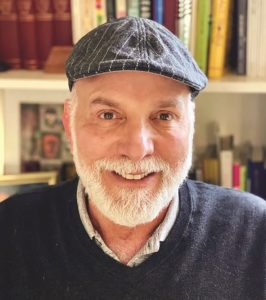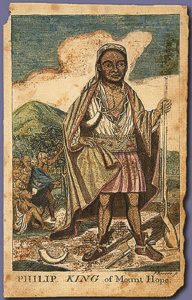This year’s “hybrid” Provincetown International Film Festival — both live and virtual — marks the return of the annual event’s extraordinary bounty. There’s a rich collection of narrative and documentary features screening, and some stellar short programs as well. A few of the features, such as Give or Take and Red River Road, were shot on the Cape, and two programs of short films are about New England.
Two of those shorts, both documentaries, were made by local filmmakers who use their homes here and their backgrounds as source material and inspiration.

Fermín Rojas, who lives in Provincetown with his husband, Jay Kubesch, a retired Cape Air pilot, directed one of the shorts, King Philip’s Belt: The Story of Wampum. Rojas and Kubesch have a company, DKR Films, that creates videos for clients, including the Pilgrim Monument and Provincetown Museum, which had them shoot historical re-enactments for the kiosks at the PMPM’s renovated exhibit space.
The indefatigable Rojas was also commissioned to make three short films about King Philip’s Belt, a sacred Wampanoag artifact made of wampum that was snagged by the British and then lost. The tribe has meticulously created a replacement, an effort that Rojas explored. “King Philip” is the British name for Metacomet (or Metacom), the elected Wampanoag chief who led a last-ditch Native American war to expel the colonists. He was brutally murdered and his head was mounted on a pole at the entrance to Plymouth, where it remained for decades.
“When we finished, we had all this great material — I really felt the history needed to be told,” Rojas says. So, he made the film being shown at the festival. “There’s the story of the lost belt and, also, of the creation of a new one, with the fervent hope that it will call out to the missing belt. The Wampanoag believe these things are living objects that have a spirit of their own.”

Wampum, or beads made of quahog shells, is more than just money, which is how Westerners have understood the word. Rojas’s film shows the vitality in these beads, with Wampanoag scholars and craftspeople explaining their beliefs and practices. “I’m not the best person to do this history: I’m not a Native,” Rojas says. “But the story spoke to me. Being an immigrant myself, I know what it’s like to have your way of life taken away from you.”
Rojas was born in Cuba in 1960, soon after Castro’s revolution. “We left in 1966 and settled in Miami Beach,” he says of his family. “We arrived in the U.S. with nothing.” Though he was obsessively interested in theater (“I was a pure-bred Stanislavskian actor,” he says), Rojas ended up studying finance in college and going into banking. He came out as gay in 1980 and learned he was HIV-positive in 1985, while donating blood. His relationship with Kubesch brought him to Provincetown, and, since arriving, he’s been devoting himself fully to the arts.
A job at Galería Cubana in town led to his co-producing the full-length documentary Alumbrones, about Cuban artists, and his first-ever trip back to his homeland. And he’s been working at DKR Films ever since.
The other notable short at the festival by an emerging homegrown talent is White Space, a documentary about four women of color who grew up on Cape Cod. Their stories intrigued director Michael Cestaro, who grew up white in Eastham.

“People of color exist in a white space,” he says. “But this is not their culture. Our history is not meant to include them.” The women in the film — singer-songwriter Tianna Esperanza, attorney Muska Yousuf, poet Alejandra Cuadra, and singer Mozelle Andrulot — are all passionate, and Cestaro interviewed and shot them in Provincetown’s atmospheric Hawthorne Barn over the course of one day. The effect is transporting, almost otherworldly — which is exactly the point.

White Space is Cestaro’s second documentary short (his first was the stunning Clay, about Orleans ceramicist Steve Kemp), though he’s hardly a neophyte: he has extensive experience in commercial photography and video. He went to Nauset Regional High School and the Berklee School of Music, intending to work in music production. Upon graduating, however, he quickly became disillusioned.
“It’s an industry staffed by rich kids,” Cestaro says. “There was no job I could get that would pay for all my college debt. Maybe I loved it too much. I was heartbroken. I totally sold my soul and went into the corporate world.”
Now married with kids, Cestaro left his lucrative work in Los Angeles and New York and returned to the Cape and more creative pursuits. He’s always had ADHD, he says, and loves being able to focus intently on a cinematic subject: it gives him purpose and clarity. “I try to do it very pure,” he says. “I want to be able to look at my films as life lessons: this is what I’ve learned.”
Cestaro was the cinematographer on a new project by Rojas about media guru Marshall McLuhan. And Rojas touts Cestaro’s continuing documentary work, which follows a similar format to White Space, with interviewees such as a deaf architect who recently gave a talk at Twenty Summers.
“What if the Outer Cape became a place where we can nurture filmmaking?” Rojas asks. “Michael Cestaro has found a voice here. Why can’t we assume others will find a voice here, too? What if we had a Cape Cod School of Film?”
Judging from the fare on view at the Provincetown Film Festival this year, he might be onto something.
Short List
The event: Screenings of King Philip’s Belt: The Story of Wampum, in “New England Shorts Program 1,” and White Space, in “New England Shorts Program 2,” at the Provincetown International Film Festival
The time: Program 1, live: Friday, June 18 at 11:30 a.m. (Waters Edge 1) and noon (Waters Edge 2); Program 2, live: Saturday, June 19 at 11:30 a.m. (Waters Edge 1); both programs online through June 25
The place: Live: Waters Edge Cinema, 237 Commercial St., Provincetown; online: provincetownfilm.org
The cost: Live: $20; online: $12; passholders: free
